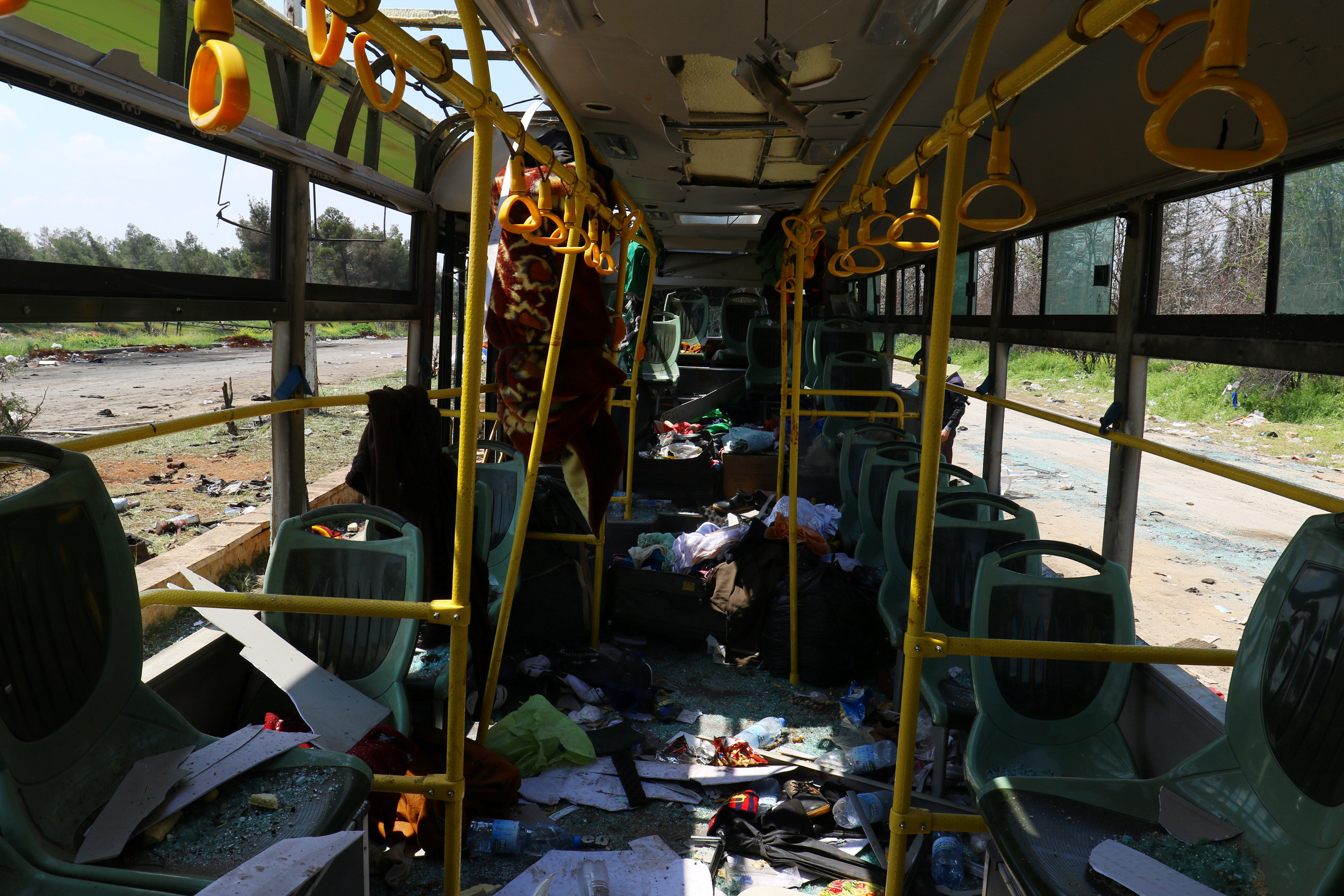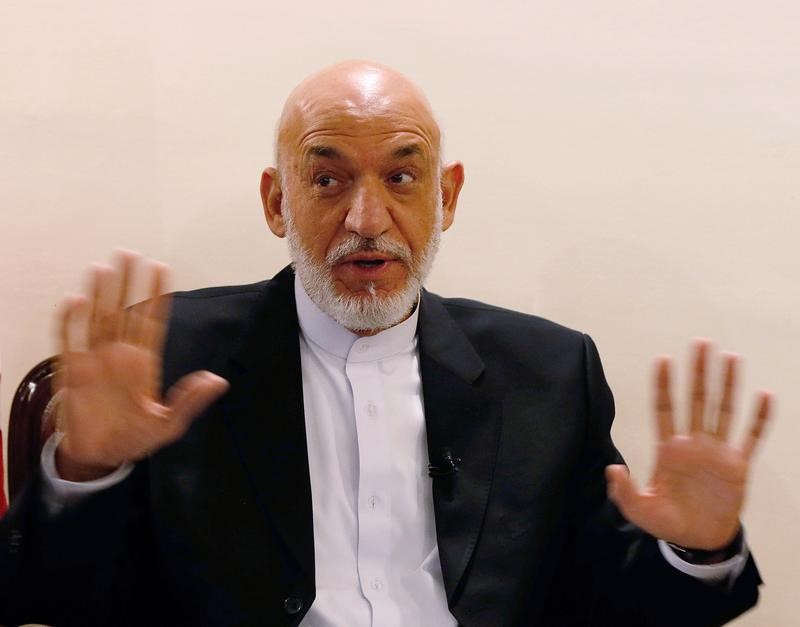
By Ulf Laessing
QARAQOSH, Iraq (Reuters) – With Islamic State expelled, Iraqi Christians are trickling back to the ransacked town of Qaraqosh, beset by anxiety for their security and yet hopeful they can live in friendship with Muslims of all persuasions.
The town, about 20 km (12 miles) from the battlefront with Islamic State in the northern city of Mosul, shows why Christians have mixed feelings about the future of their ancient community.
In the desecrated churches of Qaraqosh, Christians are busy removing graffiti daubed by the Sunni Muslim militants during two and a half years of control – only for new slogans to have appeared, scrawled by Shi’ite members of the Iraqi forces fighting street to street with the jihadists in Mosul.
But nearby a shopkeeper is doing a brisk trade selling Dutch beer, Greek ouzo and several whisky brands to Christians, Sunnis, Shi’ites and Kurds alike, with this kind of commerce perhaps offering a glimpse of how Iraq’s fractured communities could again live together peacefully.
Encouraged by security checkpoints and patrols by a volunteer force, up to 10 Christian families have returned to what used to be the minority’s biggest community in Iraq until Islamic State seized it in 2014.
Iraqi forces pushed the group out of Qaraqosh in October, part of a six-month offensive to retake Mosul. But residents are worried that the Shi’ite slogans signal a new kind of sectarian division.
“Oh Hussein” is daubed in red on the wall of a church torched earlier by Islamic State, praising the hero of Shi’ite Muslims who was martyred 1,300 years ago.
“We are afraid of this, of tensions,” said Girgis Youssif, a church worker. “We want to live in peace and demand security,” said Youssif, who returned after fleeing to Erbil, about 60 km away in Iraqi Kurdistan.
Shi’ites in the Iraqi government forces and paramilitary groups, mostly from further south in the country, have scribbled such slogans on buildings all over Mosul too.
Soldiers have also hoisted the flag of Ali in the city and on their on military vehicles. Shi’ites regard Ali, the son-in-law of the Prophet Mohammed, and the prophet’s grandson Hussein as his true successors.
Two Shi’ite flags also fly over Qaraqosh.
Most Sunnis, who are the dominant community in Mosul, have shrugged off the Shi’ite slogans as the work of a handful of religious zealots but Christians take them as a signal that their future remains uncertain.
“Of course we are afraid of such signs,” said Matti Yashou Hatti, a photographer who still lives in Erbil with his family. “We need international protection.”
Those families who have returned to Qaraqosh – once home to 50,000 people – are trying to revive Christian life dating back two millennia. However, most stay only two or three days at a time to refurbish their looted and burnt homes.
“We want to come back but there is no water and power,” said Mazam Nesin, a Christian who works for a volunteer force based in Qaraqosh but has left his family behind in Erbil.
By contrast, displaced Muslims have been flocking back to markets in eastern Mosul since Islamic State’s ejection from that part of the city, despite the battle raging in the Old City across the Tigris river which is the militants’ last stronghold.
ALCOHOL SHOP
Numbers of Christians in Iraq have fallen from 1.5 million to a few hundred thousand since the violence which followed the 2003 toppling of Saddam Hussein. Many Baghdad residents who could not afford to go abroad went to Qaraqosh and other northern towns where security used to be better than in the capital, rocked by sectarian warfare after the U.S.-led invasion.
But with the arrival of Islamic State, residents abandoned their homes with some applying for asylum in Europe. Germany alone took in 130,000 Iraqis, among them many Christians, in 2015 and 2016. But most ended up in Erbil with relatives or in homes paid for by aid agencies.
Supermarkets and restaurants remain closed in Qaraqosh, with windows smashed and burnt furniture strewn across floors.
One of the few businesses to have reopened is Steve Ibrahim’s alcohol shop in the town center; in the absence of cafes it has become a meeting point for local people. “Business has been good so far. Everybody comes here to stock up,” said Ibrahim, who has just reopened the store with his father.
They lost everything when Islamic State, known by its enemies as Daesh, wrecked their business. Now they have invested about $400 to refurbish the shop – new tiles shine on the walls – and customers are coming from beyond the town and from across the communities.
“I sell drinks to Christians and Muslims alike,” he said. “Many people come from Mosul or other towns.”
Many of Ibrahim’s customers ignore Islam’s forbidding of alcohol consumption. While he was talking, a Sunni Muslim from eastern Mosul drove up to buy a bottle of whisky and four cans of beer, packed in a black plastic bag to hide his purchase from the eyes of more religiously observant Muslims.
“You couldn’t drink during Daesh. I am glad this shop is open again,” said the man who gave his name only as Mohammed, shaking hands with Christians enjoying an afternoon beer. “I still only drink at home.”
Later a Shi’ite from a village south of Mosul arrived to pick up drinks. “I come here twice a week. It’s the only shop in the area,” he said, asking not to be named, before driving off.
Even Ibrahim comes every day from Erbil, bringing by car supplies and fuel for the generator to power the fridges filled with cold beer. Then he drives back at night.
Whether more Christians can live permanently in Qaraqosh depends on whether the security forces win their trust.
Army and police have tried to ease fears by stationing soldiers in front of churches, and even helping Christian volunteers to set up a massive cross at the town’s entrance.
On Palm Sunday last weekend, soldiers escorted a procession in preparation for Easter, Christianity’s most important festival, and provided chairs for worshippers during Mass.
Some Christian policemen joined in, singing “Hallelujah” with civilians. But walking along rows of burnt out homes and supermarkets, others were still afraid.
“The security measures are not sufficient,” said Hatti, the photographer. “We want security to surround the town.”
(Click here, http://reut.rs/2ordbfj for a Photo essay on this story)
(Editing by David Stamp)













